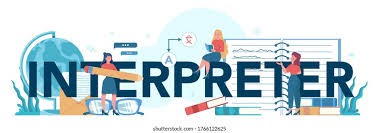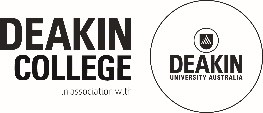Careers
Six Sectors Presenting Emerging Occupations
New scientific discoveries and rapid changes in technology highlight the prospect of new and exciting careers in the 21st century. The digital age, for example, has meant that we have never been more globally connected than we are today. So what will this mean for the future? What opportunities are on the horizon for school leavers or for those who are thinking about changing career paths?
There are many new and emerging jobs and industries in Australia that didn’t exist in their current form a few years ago. Early identification of these new opportunities is important to ensure that educational and training programs are preparing our workforce with the knowledge, skills and abilities needed to fulfil these jobs in the future.
‘There are many new and emerging jobs and industries in Australia that didn’t exist in their current form a few years ago.’
The dominance of big data is an influencing factor for high demand jobs; however, there are several other sectors that are presenting new opportunities, including:
- Digital marketing: Data analytics is providing opportunities to measure performance effectively and closely track return on investment.
- Cyber security: Cyber security is driving the growing need for consistent, organisation-wide responses to digital business risk.
- Healthcare: Positions in outpatient care centres and home healthcare agencies are growing quickly. Along with disease management expertise, these roles will have a sophisticated understanding of the data and analytics tools available as well as business priorities across the spectrum of healthcare providers.
- Retail: The retail industry is borrowing ideas from the startup world and investing in new initiatives that identify growth opportunities across digital media and technology. For example, some businesses are using insights obtained from customer behaviour analytics to create highly targeted engagement and marketing strategies.
- Manufacturing: Industrial processes are more technology focused, and factory workers will need new skills to operate lasers, sophisticated control tools and robotics equipment.
- Information technology: Evolving consumer and business needs require effective strategies for mobile and digital platforms.

Take comfort from knowing that recruitment agencies aren’t just seeking people with newly acquired knowledge to fill these emerging occupations; they’re also looking for people with existing skills, or who are prepared to reinvent themselves. Resource: Myfuture https://myfuture.edu.au/
Information for parents and carers myfuture is Australia’s National Career Information Service. It’s underpinned by career theory and research and uses Australian Government data sources. It’s managed by Education Services Australia, a national not-for-profit company owned by state, territory, and Australian Government education ministers. The Information for parents and carers section contains articles and information to help you to begin the conversation with your child about the world of work.
Career’s News
Please refer to the attachment.
Topics include:
- Focus on summer schools- explore careers over the Christmas break
- Competitions
- Passionate about sport? Check out these amazing courses
- University – early entry programs
- Stay up to date with The University of Melbourne’s fine arts and music courses
- University versus apprenticeships – Riley Payne’s story.
- Apprenticeships and traineeships – resources and tips
- Free career development programs
Job Spotlight

How to become an Interpreter
Interpreters understand and translate speech into a different language. Often they work in real time, providing instantaneous translation between parties. They can work in a huge variety of settings such as business, government, the arts, legal, and in the community. The difference between and an Interpreter and a Translator is that Interpreters work with spoken language, while Translators decipher written text.
If you have great communication skills, speak another language fluently, and have a passion for helping people, this could be the perfect job for you.
If you have these skills, you could make a great Interpreter
- Excellent language skills
- Great communicator
- Friendly and approachable
- Emotionally intelligent
- Resilient and adaptable
- Strong cultural awareness
- Good understanding of body language
What tasks can I expect to do?
- Work with clients to determine their needs
- Provide verbal translations between parties
- Determine appropriate language for each setting
- Remain professional and impartial throughout communications
- Ensure that clients are satisfied with the outcomes
Where do Interpreters work?
Depending on the kind of work you’re doing, you might work both indoors and outdoors. You might be working in an office environment, researching in museums or galleries, travelling with diplomats and government, or following camera crews to provide live translations on television and radio.
What kind of lifestyle can I expect as an Interpreter?
You will likely need work flexible hours as an Interpreter, as your services may be needed any time, including on weekends and holidays. Depending on your role, you might even have the opportunity for travel.
Most Interpreters can expect to earn an average salary throughout their career.
An important part of this job is getting along with people from all walks of life – which also means sometimes facilitating difficult conversations while remaining impartial and unemotional. But you’ll also help people’s voices be heard and make a positive difference too.
How to become an Interpreter
Even if you are already fluent in a foreign language, completing a qualification is often preferred by employers and clients.
Step 1 – Finish high school, focusing on English and your language of interest.
Step 2 – Obtain a relevant university or vocational qualification in interpreting, languages, or arts.
Step 3 – Immerse yourself in the culture of your chosen language, either through work experience or by travel, to deepen your understanding of the language and culture.
Step 4 – Become certified through an accreditation organisation or authority.
Step 5 – Upskill with short courses and continued professional development.
Find out more here:
- National Accreditation Authority for Translators and Interpreters (Australia & NZ)
- Institute of Translation and Interpreting (UK)
- American Translators Association (US)
- Canadian Translators, Terminologists and Interpreters Council
Similar careers to Interpreter
- Sign Language Interpreter
- Translator
- Languages Teacher
- Linguist
- Speech Pathologist
- Anthropologist
- Historian
Find out more about alternative careers

Occupational Therapy Degrees in Victoria in 2023
Occupational therapists assess and treat people who, due to illness, injury, or circumstance, are limited in their ability to undertake everyday activities. They assist people to regain lost functions, develop their abilities and social skills, as well as maintain and promote independence in their everyday lives to enhance health and wellbeing – Good Universities Guide – Occupational Therapist .
Occupational Therapy is offered at the following Victorian Universities
| UNIVERSITY | VCE REQUIREMENTS | ATAR 2023 |
| ACU M – Melbourne | Units 3 and 4: a study score of at least 30 in English (EAL) or at least 25 in English other than EAL; Units 3 and 4: a study score of at least 25 in one of Biology, Chemistry or Physics. | 83.50 (M) |
| Charles Sturt AW – Albury-Wodonga | No VCE prerequisites but completion of Year 12 is required, and an ATAR is used in selection. | 70.80 (AW) |
| Deakin G – Geelong W’Front | Units 3 and 4: a study score of at least 30 in English (EAL) or at least 25 in English other than EAL. | 75.45 (G) |
| Federation Uni Gi – Gippsland | Units 3 and 4: a study score of at least 25 in any English; Units 1 and 2: satisfactory completion in two units (any study combination) of Maths: General Mathematics, Maths: Mathematical Methods or Maths: Specialist Mathematics; Units 3 and 4: satisfactory completion in one of Biology, Chemistry, Health and Human Development, Maths: Further Mathematics, Maths: Mathematical Methods, Maths: Specialist Mathematics, Physical Education or Physics. | 58.15 (Gi) |
| La Trobe B – Bendigo M – Melbourne | Units 3 and 4: a study score of at least 30 in English (EAL) or at least 25 in English other than EAL. | 75.10 (B) 87.45 (M) |
| Monash P – Peninsula | Units 3 and 4: a study score of at least 27 in English (EAL) or at least 25 in English other than EAL. | 85.15 (P) |

Deakin College pathways to Deakin University
With a uniquely nurturing student experience, Deakin College is your simplest path to Deakin University.
Located across three Deakin University campuses – Melbourne Burwood, Geelong Waurn Ponds and Geelong Waterfront, Deakin College offers a range of 1-year diplomas that articulate to second year bachelor studies at Deakin University.
The diploma programs are equivalent to first year university. Each diploma consists of eight academic units, which students must complete and pass to receive the diploma.
Deakin College offers 10 diplomas, and they all offer entry into a range of bachelor degrees.
Students who do not attain the ATAR they require for a bachelor degree at Deakin University might like to browse the Deakin College website to find out more about the options offered as a pathway to Deakin University.
Jobs and Skills Australia
View national publications providing overviews of trends in the Australian labour market and workforce skills needs.
Kilbreda College Careers Website
Laura Lunardi
Careers Coordinator


